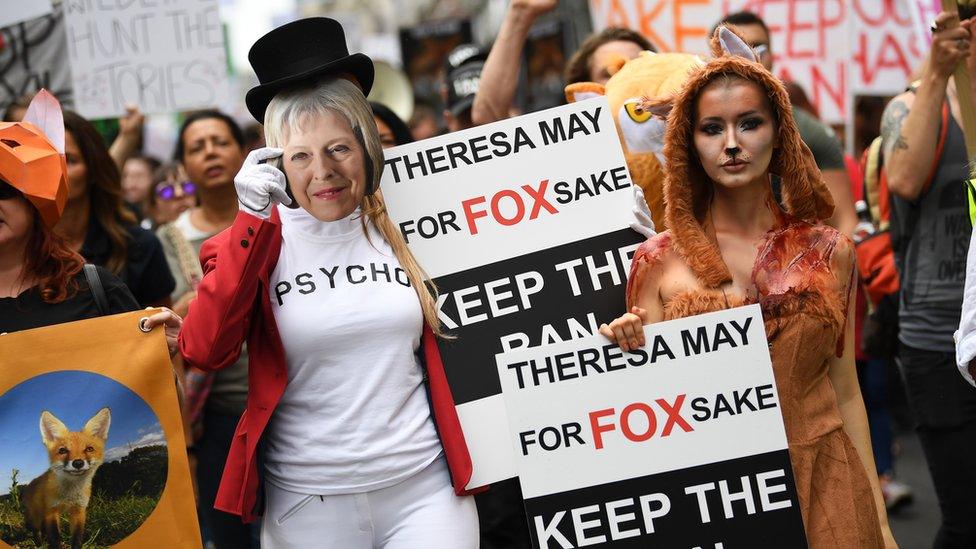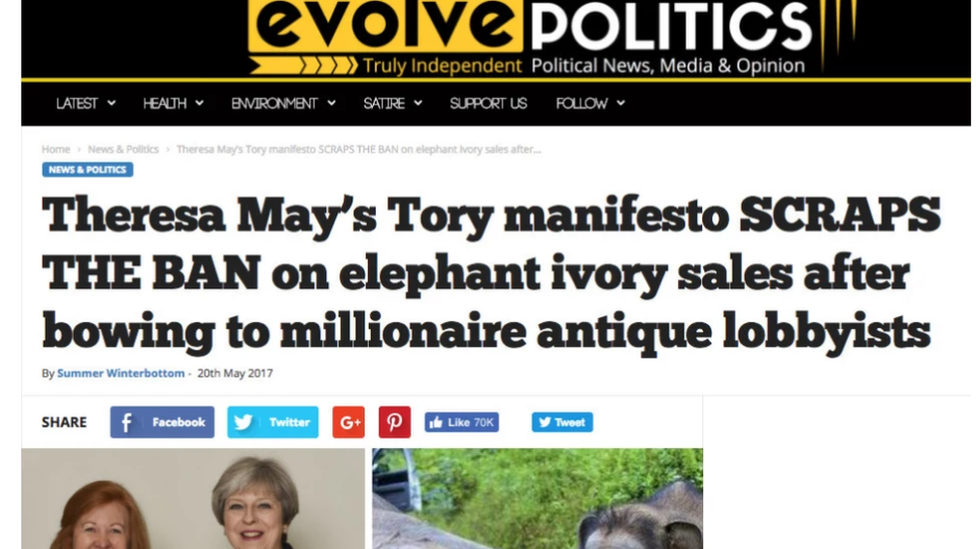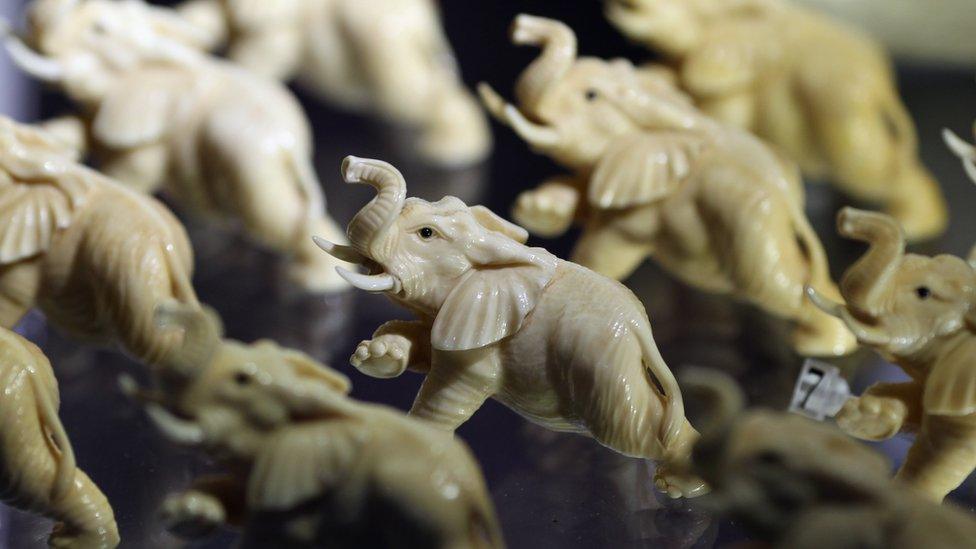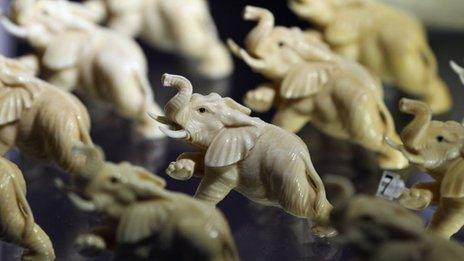Ivory, the election and social media
- Published
Why is banning ivory such a big deal?
With Brexit taking up so much time, the government has been criticised for lacking a separate policy agenda. But one minister has been busy recently with work unrelated to leaving the EU - Environment Secretary Michael Gove.
In the past few weeks he has unveiled a raft of policies aimed at protecting animals: banning bee-harming pesticides, making CCTV mandatory in slaughterhouses, and supporting a ban on trading ivory.
The last of these - ivory - tells a wider story about how, with voters increasingly spending time on social media, issues that barely feature in the mainstream press can have a big impact on elections.
During this year's general election campaign, while the press and TV news focused on Theresa May's U-turn on social care, dubbed the "dementia tax" by her opponents, and speculated about other supposedly unpopular Tory general election polices, another conversation was taking place.
"In the same week that Theresa May did a U-turn on the dementia tax, several of the most viral stories online were from pro-Corbyn websites angry about the ivory ban, even though no prominent politician had discussed it," says Buzzfeed's political editor Jim Waterson.
"Emotive stories, especially about animals, almost always do well on the internet."
This is something the writers of the Conservative election manifesto are unlikely to have taken into account when they decided not to repeat the previous commitment to ban the sale of ivory products.
Buzzfeed has published research showing that many of the most shared articles, external during the 2017 campaign were published by non-traditional outlets rather than mainstream newspapers and broadcasters.

Anti-hunting protesters marched on Westminster during the election
Research for Buzzfeed by YouGov found about one in seven voters recalled reading stories about the ivory trade, with higher numbers for the 18-24 age group who mostly reported seeing the story on social media.
Voters under the age of 25 turned out in higher numbers than usual and appear to have been more likely to have voted Labour than Conservative.
Matt Turner is senior editor of Evolve Politics, one of the pro-Corbyn sites which covered animal rights prominently during the campaign. His site published a widely-shared article about the fact the Conservative manifesto did not mention an ivory ban, external.
"People were surprised that they hadn't heard about this before," he said. "When we published the story there was a huge sense of outrage and injustice."
Mark Wallace, editor of the website Conservative Home, has said the party's failure to clearly confirm support for a ban on ivory, external "acted as recruiting sergeants for Labour online", along with the proposal for a free vote on reversing the ban on hunting with dogs.

Pro-Corbyn sites covered the ivory issue
Research by ComRes for the Daily Mirror , externalindicated that Labour's pledge to keep the fox hunting ban was the most popular policy in Labour's manifesto, supported by more than three quarters of voters, including a majority of Conservatives.
The Conservatives' general election manifesto included a pledge to "protect rare species" but there was no mention at all of ivory.
This was in contrast to the 2010 and 2015 Conservative manifestos, which included a pledge to "press for a total ban on ivory sales".
The natural conclusion to draw from this for some people was that the policy had been quietly dropped - especially given that previous attempts to limit sales of ivory had failed to get off the ground, despite election promises.
The UK does ban the trade in raw ivory tusks but currently allows for trade in antique ivory that pre-dates 1947 - and it has become the world's leading exporter of legal ivory carvings and antiques in recent years.
Labour's manifesto, by contrast, pledged a total ban on ivory trading. This was emphasised on the election trail by Labour MP Rachael Maskell, who held a campaign event specifically about animal rights.
"There are lots of people that care about these things," she said.

Rachael Maskell almost tripled her majority at the general election
She almost tripled her majority in York Central. Labour's pledge to keep the fox hunting ban in place was also popular, she said, adding that it often came up voluntarily on the doorstep.
The curious thing is that the Conservative government has now announced plans for a ban on the sale and export of nearly all ivory items - a move which has been given a cautious welcome by campaigners.
Environment Secretary Michael Gove has launched a 12-week consultation into the ivory trade ban, with draft legislation likely in the New Year.
The announcement was widely welcomed although people involved in the antiques business were not so happy about the proposed change.
Noelle McElhatton from the Antiques Trade Gazette has said banning the trade in historic objects "will not save a single living elephant".

The government says there will be some exemptions - including for musical instruments and items "of significant artistic, cultural and historic value".
Some campaigners, including Rachael Maskell, have raised concerns about the size and scale of these exemptions, which they worry could become loopholes.
It's impossible to say for sure whether the ivory ban had a concrete impact on the 2017 general election result.
But it does contain lessons for those writing future general election manifestos, who may have to think more carefully about how their words will be interpreted.
"British people just really like animals and you mess with that at your peril," says Jim Waterson.
- Published6 October 2017
